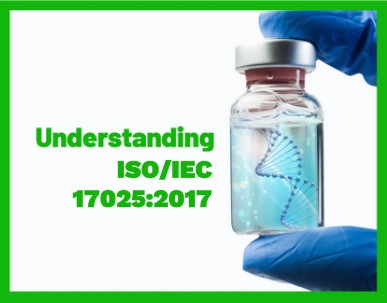Laboratory Management according to ISO/IEC 17025:2017 Standard
Laboratory management in accordance with ISO/IEC 17025:2017 standards

Quicklink
Overview
Accreditation under the ISO/IEC 17025 standard plays a vital role in supporting the production of accurate and reliable results from testing, calibration, sampling, and measurement services across various fields.
This is the international standard for laboratories, which laboratories must meet if they wish to demonstrate that they:
- Operate competently
- Are capable of producing valid results
- Can plan for and address risks and opportunities
- Can act objectively
- Maintain consistency in laboratory operations
Course Objectives
Upon completion of this course, participants will be able to understand:
- The requirements of ISO/IEC 17025
- How to practically apply the standard in testing and calibration laboratories
- How a laboratory management system should meet the standard's requirements to achieve quality results
- How to manage risks and opportunities to positively influence result quality and customer satisfaction
The course covers the requirements of the following clauses of ISO/IEC 17025:
- Scope
- Normative references
- Terms and definitions
- General requirements: Fundamental ethical concepts, including impartiality and confidentiality
- Structural requirements: Organizational structure to ensure effective laboratory management
- Resource requirements: Essential elements to perform laboratory activities
- Process requirements: Laboratory operations to ensure technically valid results
- Management system requirements: Management procedures to support quality results and effective laboratory operations
What will you learn
- ISO/IEC 17025:2017 Standard
- Developing a Laboratory Management System Documentation According to ISO/IEC 17025
- Internal Auditing for Laboratories
- Ensuring the Quality of Test Results
- Essential Skills for Laboratory Managers
- Measurement Uncertainty for Testing and Calibration Laboratories
- Internal Auditor Competency for Laboratory Assessments
- Selection and Validation of Methods
- Selection and Validation of Test Methods in the Field of Chemistry
- Selection and Validation of Test Methods in the Field of Biology
- Selection and Validation of Test Methods in the Fields of Mechanics, Electricity, and Construction Materials
- Risk Management in Laboratory Operations
- Decision Rule Implementation
Target Audience
This Course is Suitable for Anyone Who:
- Needs to understand the requirements of ISO/IEC 17025
- Is responsible for establishing their organization's management system
- Is in charge of ensuring the laboratory’s compliance with ISO/IEC 17025
- Works in a testing or calibration laboratory
- Holds a management or quality control role
This course is also beneficial for testing and calibration laboratories considering or currently in the process of achieving accreditation under the ISO/IEC 17025 program by the BoA (Board of Accreditation).
Register
Become a member
Benefits of being a BoA accredited organisation
The Bureau of Accreditation (BoA) accredits organizations engaged in activities such as testing and calibration laboratories, inspection bodies, certification bodies, medical laboratories, proficiency testing providers, and reference material producers for their products and services. This provides consumers with the necessary confidence to make safe, healthy, and reliable choices.
Choosing to become an organization accredited by BoA offers several competitive advantages for your business.
Accreditation contributes to the promotion of international trade. Once accredited, the results of conformity assessment activities (certification, testing, inspection) are recognized by other countries, thereby facilitating the import and export of goods.
Accreditation enhances the reliability of products, goods, and services, as they are inspected and assessed by competent organizations.
In order to be accredited, organizations must establish, maintain, and continuously improve their conformity assessment activities in accordance with international standards. Therefore, accreditation helps ensure the competence of conformity assessment bodies.
Accreditation increases the trustworthiness of conformity assessment results, enabling outcomes achieved in one location to be accepted in many others.
Accreditation helps reduce compliance costs for businesses by eliminating the need to repeat testing or assessment activities.
